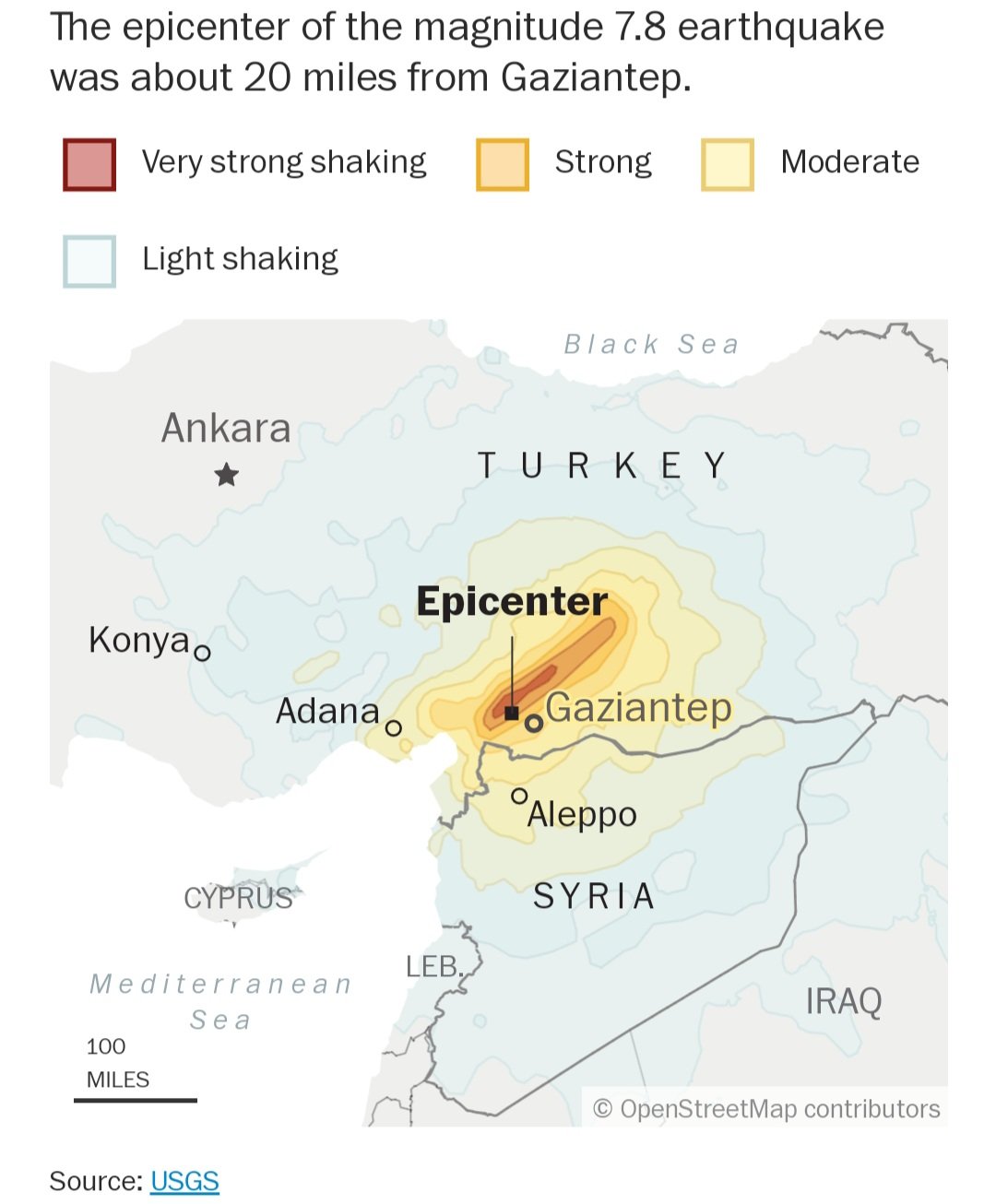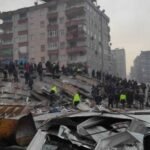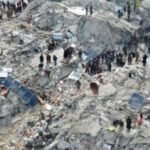More than 11,400 people have been confirmed dead following the 7.8-magnitude earthquake that hit Turkey and Syria on Monday.
Experts expect the death toll rise as thousands of rescuers continue to dig through the rubble of thousands of collapsed buildings in search of survivors.
Turkey’s President Recep Tayyip Erdoğan, who met with survivors at the epicentre of the quake said the death toll in the country has reached 8,754, with thousands injured.
In Syria, 2,662 have have died, according to the authorities. More than 4,500 have been injured.
The World Health Organization has suggested the final toll could rise as high as 20,000. A similar-sized earthquake in the region in 1999 killed at least 17,000 people.
The deadly earthquake that struck in the early hours of Monday was felt in Lebanon, Jordan, Israel and Egypt.
The quake was followed by dozens of aftershocks, including an unusually powerful 7.5-magnitude quake, the U.S. Geological Survey said..
This is one of the strongest earthquakes to hit Turkey in more than 100 years.
The killer 7.8 earthquake was centered north of the city of Gaziantep about 90 kilometres (60 miles) from the Syrian border. This is the region which houses millions of refugees from the Syrian civil war.

The quake struck just after 4 a.m. Monday morning local time, 23 kilometers (14.2 miles) east of Nurdagi, Gaziantep province, at a depth of 24.1 kilometers (14.9 miles), the United States Geological Survey (USGS) said.
Monday’s quake is believed to be the strongest to hit Turkey since 1939, when an earthquake of the same magnitude killed 30,000 people, according to the USGS.
In the past 25 years, seven quakes with magnitude 7.0 or greater have struck Turkey – but Monday’s quake is the most powerful according to reports.
Ifunanya Ikueze is an Engineer, Safety Professional, Writer, Investor, Entrepreneur and Educator.

























































